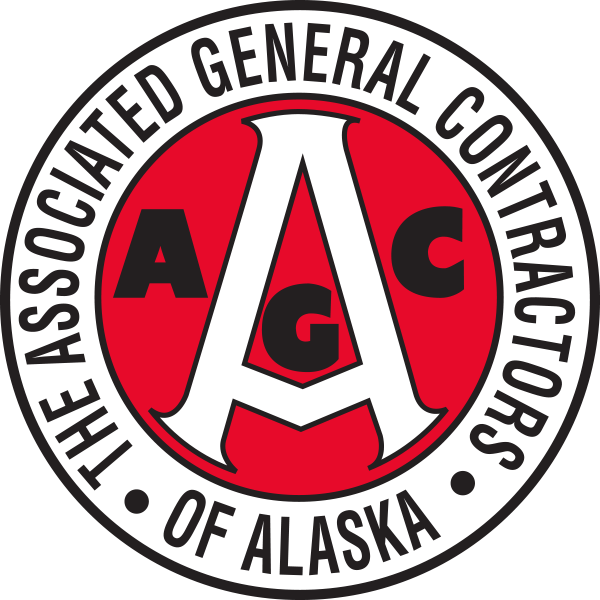
Update
n Alaska, there are two types of communities: those that are road accessible and those that aren’t. Of the other forty-nine states, Hawaii is the only one familiar with this situation. Yet, even road-accessible communities in Alaska face natural disasters that temporarily turn them into remote communities, as it did when a significant landslide created a three-week traffic closure for an area south of Seward. To reopen the road quickly, multiple companies pulled together to remediate the landslide and keep people moving.
Landslides along Lowell Point Road are not unusual. Cole Petersen, owner/operator of Associated General Contractors of Alaska member company Metco Alaska, LLC, says football-sized rocks frequently come down in small batches off Bear Mountain; however, nothing indicated the mountain would produce a major slide like it did on May 7.
An estimated 80,000 cubic yards of dirt, rocks, and trees that measured approximately 300 feet wide buried the road that day, cutting off 200 residents from the main part of town. Petersen says he met with Seward City Public Works officials immediately after the slide to assess the situation. There he quickly realized the magnitude of the problem.
“I knew I was over my head equipment-wise the moment I saw it,” says Petersen.
Luckily, Harris Sand and Gravel, Inc. was working on a boat launch project in town. Petersen says Bill Harris, the company president, contacted him to say he had a Hitachi 870 large excavator available for immediate use. Another AGC of Alaska member company, Drake Construction, Inc., also freed up an excavator to loan operators so remediation could get underway.
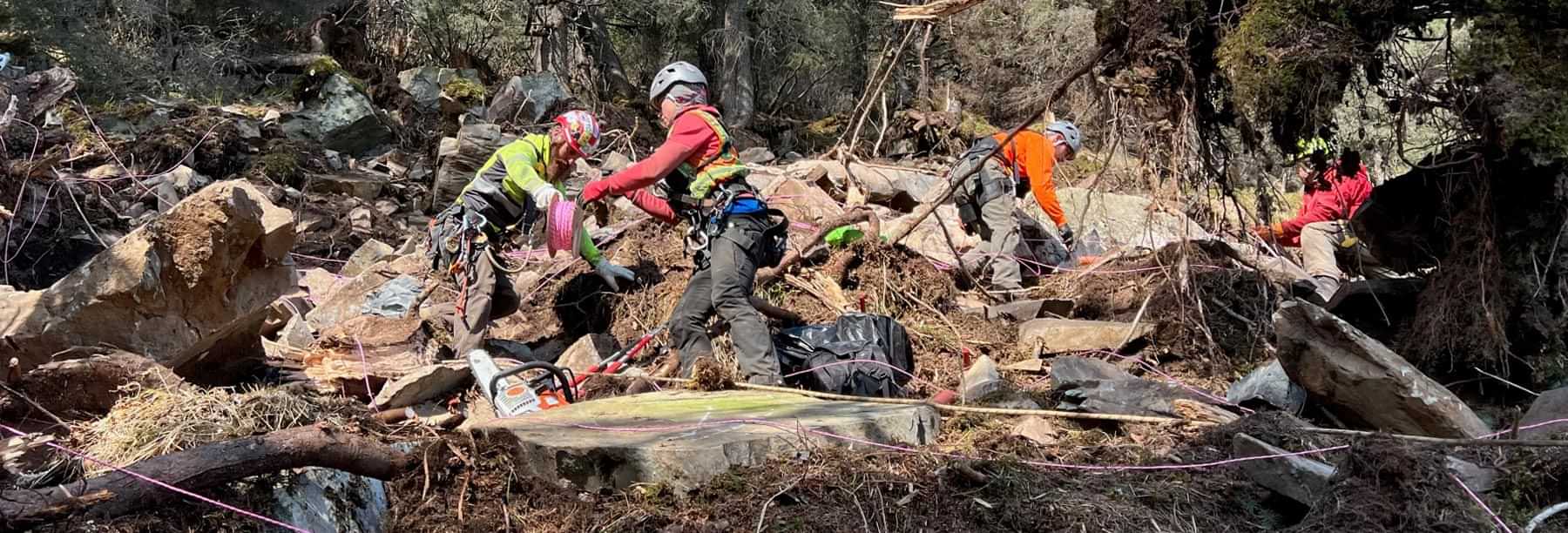
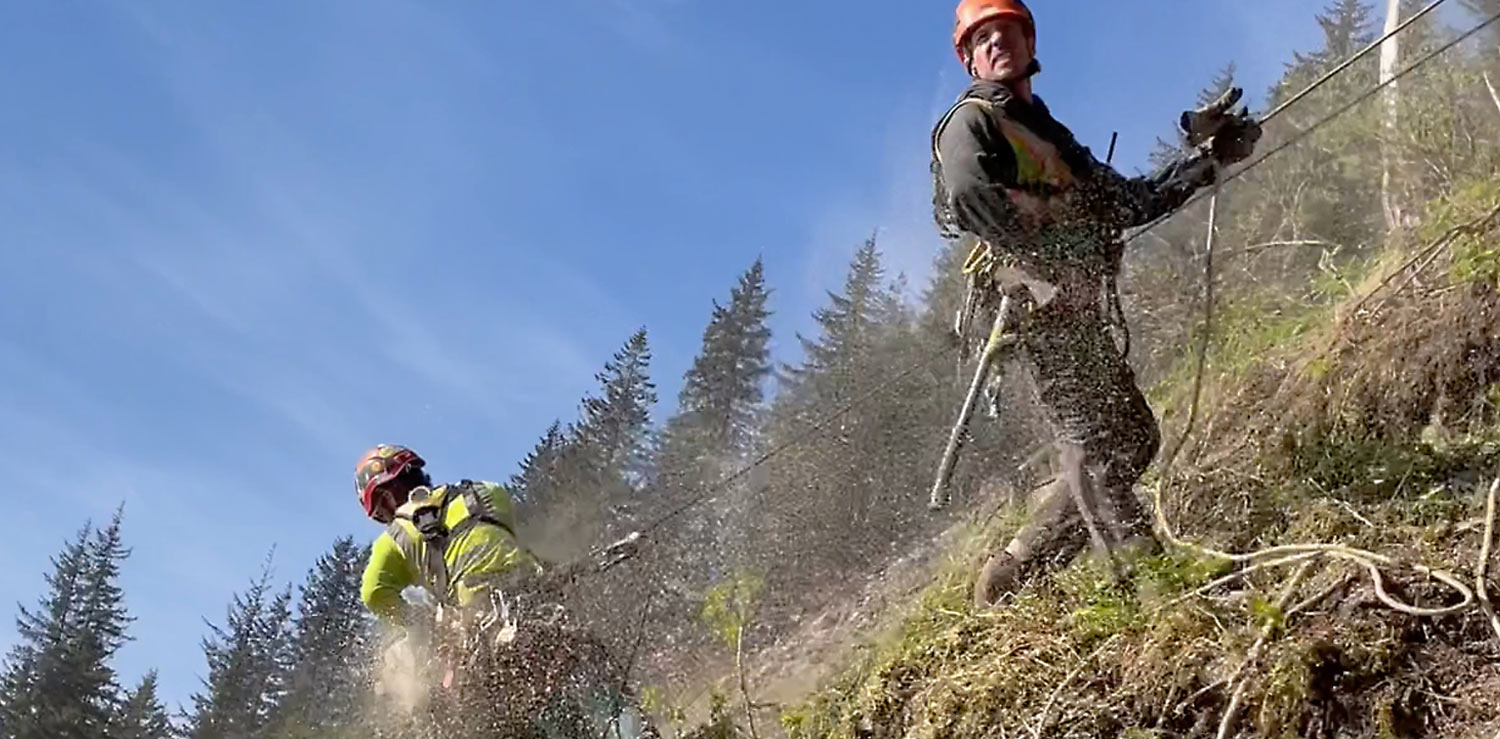
Crews from Advanced Blasting Services, LLC set explosives and scaled down the mountainside to remove trees and loosen large rocks that would most likely fall in the near future. Billy Russo, president of Advanced Blasting, says approximately 900 pounds of explosives were used during the project.
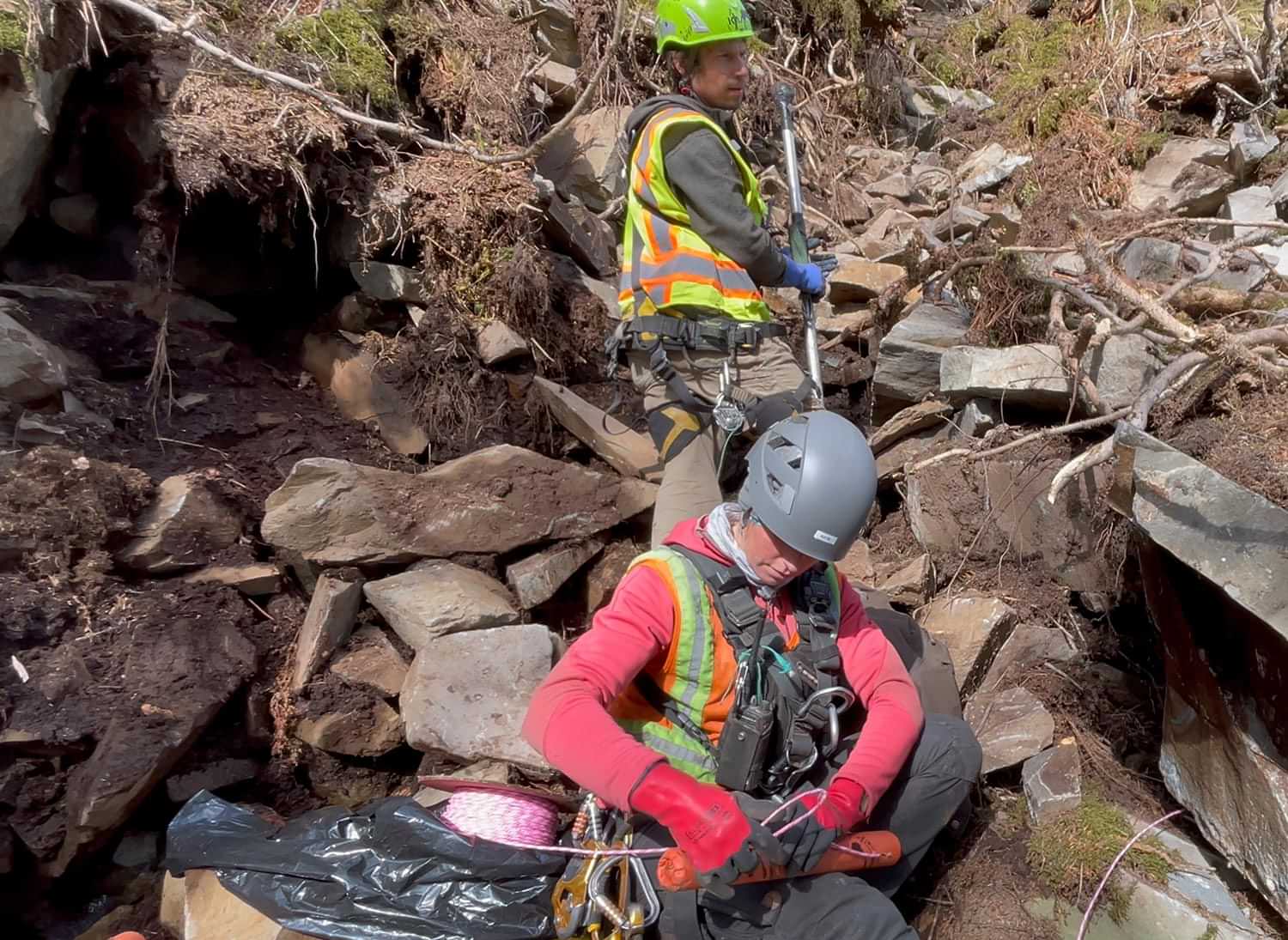
Petersen says cleanup proved challenging. Between the pile of debris and Resurrection Bay running along the roadside, safely moving material required creating a ramp to the top of the slide, where a crew could work its way down. As an extra safety precaution, they maintained a trench between the excavator and the mountainside for additional debris to fall into. A City of Seward press release issued on May 10th stated the area of greatest concern was the space between a 2020 landslide and the 2022 slide, where a state geologist identified a large crack in the landscape. City officials who visited the site observed regular and continual shedding of debris from the top southerly portion of the slide area.
As Metco moved piles of material, Advanced Blasting Services, LLC, also an AGC of Alaska member company, took care of loose boulders and removed trees from around the edge of the slide area using a mix of explosives and a crew “scaling” the site. Blasting started a few days after the slide occurred. Crews initially focused on the outer edge of the slide that threatened to break away, in order to make work safe and passable. As remediation efforts progressed, equipment operators frequently came across boulders as big as full-size trucks that the massive excavator couldn’t move. Experts used an air-powered hand-held drill to bore holes and set explosives for detonation. Once a boulder was reduced to manageable-sized pieces, excavators removed material from the area.
In addition to setting explosives, crews “scaled” the area by roping off and going over the top of the slide area with pry bars, shovels, and saws. Crews cut small rocks from around much bigger rocks until they fell. Scaling is a time-intensive process, taking hours to get debris loose. Since rocks have fallen in this area for years and most likely will continue, the goal was to remove material during this project and reduce the amount falling in the future.
“It really helped that we already had a good working relationship with the city,” Billy Rosseau, president of Advanced Blasting Services. “We’ve worked with them in the past and had proven ourselves capable of handling this project safely. It went a long way to speed up the permitting process so we could get to work immediately.”
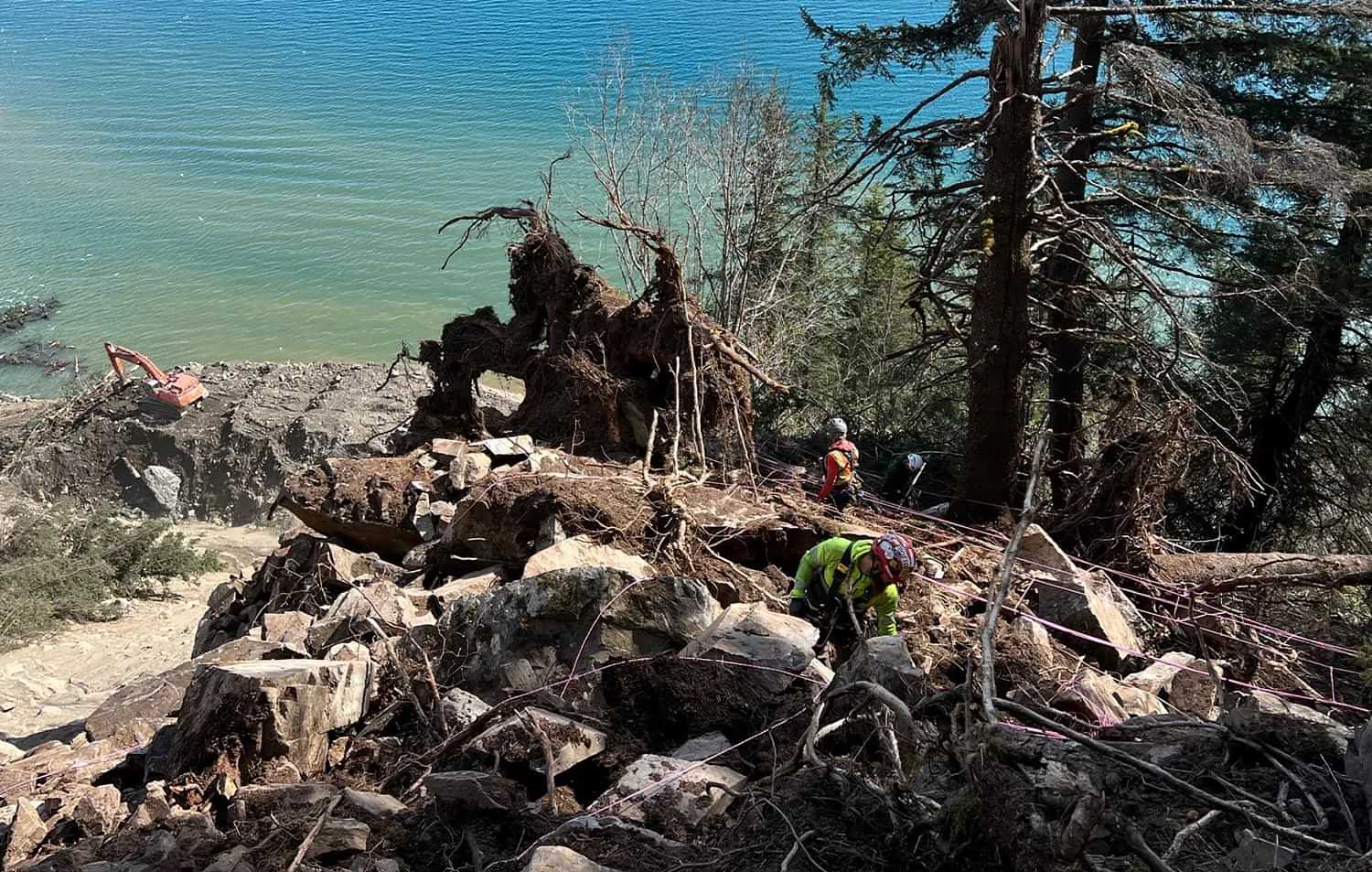
Crews from Metco Alaska, LLC and Advanced Blasting Services, LLC worked together to clean up 40,000 cubic yards of dirt, rocks, and trees that slid off Bear Mountain on May 7. Small landslides along Lowell Point Road just south of Seward happen frequently.
Crews worked constantly for twenty days straight, fourteen hours a day. Petersen says crews would often make progress on clean-up in one area, only to watch the hill slide elsewhere. This meant additional hours they hadn’t anticipated moving material. During this time, the road south of Seward remained closed, and residents used a free water taxi and bus shuttle to get to the central part of town. Two-way traffic reopened on May 27, followed by several temporary closures for additional blasting and scaling work.
Petersen says the success of this project was a team effort. If it had not been for companies stepping up with equipment and means to get it to the site, Lowell Point Road would have remained closed for longer.
Both Petersen and Rosseau say future slides are inevitable due to the instability of Bear Mountain. Heavy rains, snow, or earthquakes can cause landslides, meaning work related to this disaster will be ongoing for the foreseeable future.